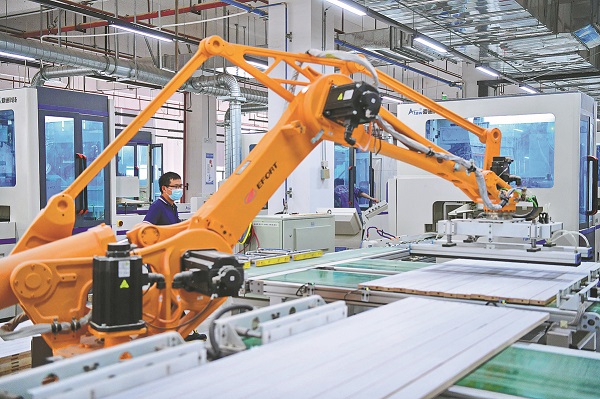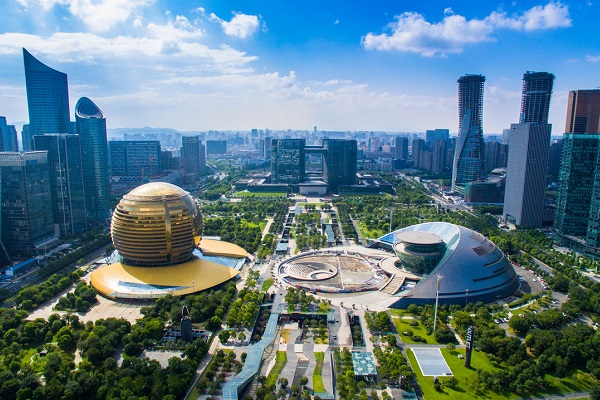Steps unveiled to boost smart manufacturing

An employee oversees a smart robot processing furniture parts at a production facility in Ganzhou, Jiangxi province, in May. [ZHU HAIPENG/FOR CHINA DAILY]
The State Council, China's Cabinet, rolled out a raft of policy measures on Monday to advance the integration of artificial intelligence into the country's new industrialization process, in order to boost its strengths in manufacturing and digitalization.
Chaired by Premier Li Qiang, a State Council executive meeting focused on the integration of AI and manufacturing while highlighting intelligent manufacturing and scenario-based applications.
The measures aim to expedite the smart transformation of key industries, develop intelligent products, upgrade the industrial manufacturing system, and foster new productive forces at a faster pace, according to the meeting.
Data released on Friday by the Ministry of Industry and Information Technology showed that the number of AI enterprises in China has so far topped 4,400.
Meanwhile, China's AI industry is expected to reach a scale of 1.73 trillion yuan ($240.40 billion) by 2035, accounting for 30.6 percent of the global market, according to a report released in mid-January by market research company CCID Consulting.
AI technologies offer numerous advantages, including enhanced productivity, predictive analytics, automation and the optimization of processes, ultimately leading to increased efficiency and competitiveness, said Pan Helin, co-director of the Digital Economy and Financial Innovation Research Center of Zhejiang University's International Business School.
With the government's support and a forward-looking approach, China is well-positioned to leverage the power of AI to shape the future of its industries and drive sustainable economic growth, Pan added.
The meeting also decided on a package of forceful measures to anchor market expectations and foster the stable and sound development of the capital market.
It stressed the need to achieve a better balance between investment and financing dynamics, improve the quality of listed companies, and increase the participation of medium- to long-term funds, in order to enhance the market's stability.
The meeting also emphasized the importance of strengthening capital market regulation, adopting a zero-tolerance approach to illegal activities, and creating a standardized and transparent market environment.
Moreover, efforts will be made to implement more effective measures to ensure market stability and boost investor confidence. In particular, it is imperative to maintain consistency in macroeconomic policy orientation and foster policy coordination, according to the meeting.
Noting that the on-demand delivery service sector has played an important role in promoting consumption, improving livelihoods and expanding employment, the meeting also took steps to create a more enabling environment for such business to grow further.
wangkeju@chinadaily.com.cn
-
Visionary Pathway - Hangzhou Playbook
July 15, 2025



